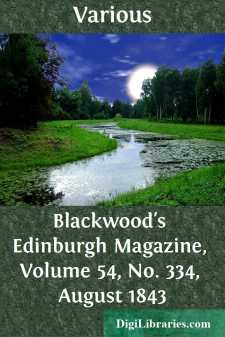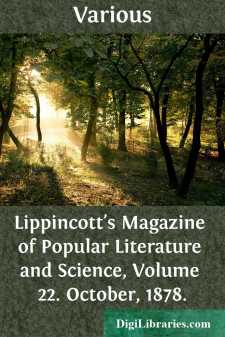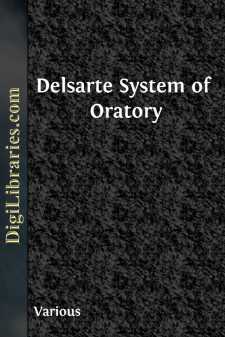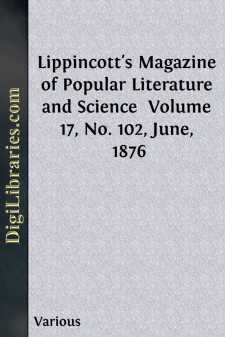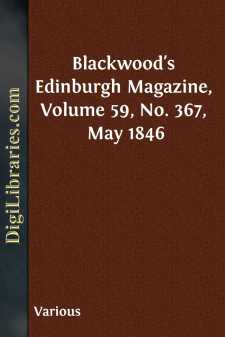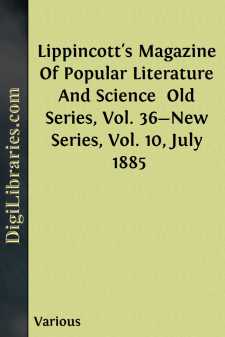Categories
- Antiques & Collectibles 13
- Architecture 36
- Art 48
- Bibles 22
- Biography & Autobiography 813
- Body, Mind & Spirit 142
- Business & Economics 28
- Children's Books 17
- Children's Fiction 14
- Computers 4
- Cooking 94
- Crafts & Hobbies 4
- Drama 346
- Education 46
- Family & Relationships 57
- Fiction 11829
- Games 19
- Gardening 17
- Health & Fitness 34
- History 1377
- House & Home 1
- Humor 147
- Juvenile Fiction 1873
- Juvenile Nonfiction 202
- Language Arts & Disciplines 88
- Law 16
- Literary Collections 686
- Literary Criticism 179
- Mathematics 13
- Medical 41
- Music 40
- Nature 179
- Non-Classifiable 1768
- Performing Arts 7
- Periodicals 1453
- Philosophy 64
- Photography 2
- Poetry 896
- Political Science 203
- Psychology 42
- Reference 154
- Religion 513
- Science 126
- Self-Help 84
- Social Science 81
- Sports & Recreation 34
- Study Aids 3
- Technology & Engineering 59
- Transportation 23
- Travel 463
- True Crime 29
Sort by:
by:
Various
I. "Lord, but English people are funny!" This was the perplexed mental ejaculation that young Lieutenant Skipworth Cary, of Virginia, found his thoughts constantly reiterating during his stay in Devonshire. Had he been, he wondered, a confiding fool, to accept so trustingly Chev Sherwood's suggestion that he spend a part of his leave, at least, at Bishopsthorpe, where Chev's people...
more...
by:
Various
PART THE LAST. We here close our attempts to convey to the English reader some notion, however inadequate, of the genius and mind of Schiller. It is in these Poems, rather, perhaps, than in his Dramas and Prose works, that the upright earnestness of the mind, and the rich variety of the genius, are best displayed. Here, certainly, can best be seen that peculiar union of intellect and imagination which...
more...
by:
Various
WARWICK AND COVENTRY. OBLIQUE GABLES IN WARWICK.The history of England is written in living characters in the provincial towns of the kingdom; and it is this which gives such interest to places which have been surpassed commercially by great manufacturing centres and overshadowed socially by the attractions of London. The local nobility once held state little less than royal in houses whose beautiful...
more...
by:
Various
Chapter I. Preliminary Ideas--criterion of the Oratorical Art. Let us note an incontestable fact. The science of the Art of Oratory has not yet been taught. Hitherto genius alone, and not science, has made great orators. Horace, Quintilian and Cicero among the ancients, and numerous modern writers have treated of oratory as an art. We admire their writings, but this is not science; here we seek in vain...
more...
by:
Various
A Chemist of merit, Mr. A. Müntz, who has already made himself known by important labors and by analytical researches of great precision, has been led to a very curious and totally unexpected discovery, on the subject of which he has kindly given us information in detail, which we place before our readers.[1] Mr. Müntz has discovered that arable soil, waters of the ocean and streams, and the...
more...
by:
Various
THE CENTURY—ITS FRUITS AND ITS FESTIVAL. VI. THE DISPLAY—INTRODUCTORY. FAÇADE OF THE SPANISH DIVISION, MAIN BUILDING.All things being ready for their reception, how were exhibits, exhibitors and visitors to be brought to the grounds? To do this with the extreme of rapidity and cheapness was essential to a full and satisfactory attendance of both objects and persons. In a large majority of cases...
more...
by:
Various
I There was a card party at the rooms of Naroumoff, of the Horse Guards. The long winter night passed away imperceptibly, and it was five o'clock in the morning before the company sat down to supper. Those who had won ate with a good appetite; the others sat staring absently at their empty plates. When the champagne appeared, however, the conversation became more animated, and all took a part in...
more...
by:
Various
Part the Last. There was a crowd and a clamour in the principal coffee-house of Pampeluna at nine o'clock on a July evening, that of the first day after Don Baltasar's escape from the town. The numerous tables were surrounded by officers of Cordova's army, still flushed with their recent victory, and eager to enjoy to the utmost a period of relaxation, which, for aught they knew, the...
more...
by:
Various
ON THIS SIDE. VII. It has not been concealed that, with all his fine qualities, Mr. Ketchum was an obstinate man, and so, in spite of his wife's remonstrances, he came down-stairs next morning—Sunday morning—in a dress that she had assured him was "only fit for one's bedroom,"—namely, a very gorgeous Oriental dressing-gown (Mabel's gift the preceding Christmas), with a fez...
more...
by:
Various
The Latest Viewpoints of Men Worth While Stuyvesant Fish Says That Americans Are Wasteful, While Pastor Wagner Praises Our National Character—John D. Rockefeller, Jr., and Professor Fagnani Discuss Joseph's Corner in Corn—Thomas F. Ryan Holds That Opportunity to Win Wealth is Necessary to Industrial Progress—Andrew Carnegie as the Financier of Spelling Reform—With Other Opinions of...
more...



